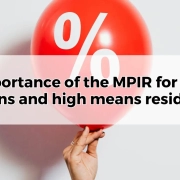How can I ensure my loved one’s financial security in aged care?
Table of Contents
ToggleCaring for an aging loved one is a privilege filled with countless rewards, but let’s be honest, it can also come with worries, especially when it comes to finances. The rising cost of aged care in Australia is a reality many families face, and it’s understandable to feel overwhelmed by the financial implications.
This blog post aims to shed light on the financial landscape of aged care in Australia, explore strategies to maximise government assistance, and offer practical tips for optimising your financial resources. Remember, you’re not alone in this. With the right tools and knowledge, you can make informed choices that benefit your loved one and bring peace of mind to your family.
Understanding the Financial Landscape
Before diving into strategies, let’s get familiar with the financial terrain of aged care in Australia. Think of it as a map guiding our journey.
Government Support
Australia offers various government-funded options, each with its own costs:
Home Care Packages
This allows older adults to receive care in their own homes. Each package level provides a set amount of funding for services like personal care, cooking, cleaning, and social support. You might contribute some costs based on your loved one’s income and assets.
Residential Care
When living at home becomes unmanageable, residential aged care facilities offer 24/7 care and support. You’ll contribute a basic daily fee that covers living expenses like meals and accommodation. Additionally, there’s a means-tested accommodation contribution based on your loved one’s assets. Extra service fees also exist for things like hairdressing or physiotherapy.
Commonwealth Home Support Program (CHSP)
Commonwealth Home Support Program focuses on supporting individuals with higher care needs within their homes. It doesn’t replace Home Care Packages but can offer additional assistance.
These are just the high-level costs. For specific details and eligibility, it’s crucial to visit the My Aged Care website or reach out to a financial advisor familiar with aged care costs.
Navigating the Costs
Dementia-specific care
Often requiring specialised attention, dementia care might incur additional fees. Speak to the facility directly for accurate information.
Transparency is key
Always ask for detailed breakdowns of fees and ask clarifying questions. Don’t hesitate to seek help understanding the costs.
Strategies for Securing Financial Stability
Now that we’ve navigated the financial landscape, let’s delve into strategies that can help you secure your loved one’s financial stability in aged care. Remember, the key is a proactive approach:
Start the Conversation Early
Open communication is vital. Encourage discussions with your loved one about their preferences and wishes for future care. Discuss potential costs openly and honestly. This paves the way for informed decisions together.
Harness the Power of Resources
- My Aged Care: This government website offers a wealth of information and tools, including an assessment process to determine eligibility for government support.
- Financial Advisors: Seeking guidance from a qualified financial advisor familiar with aged care costs can be invaluable. They can personalise strategies based on your individual circumstances.
Maximise Government Assistance
- Age Pension: Check eligibility for the Age Pension, which can contribute to aged care costs. Explore Centrelink resources for details.
- Aged Care Subsidies: Government subsidies can significantly reduce aged care fees. Understand the assessment process and eligibility criteria through My Aged Care.
- Concessions and Support Programs: Various concessions and support programs may be available depending on your circumstances. Explore My Aged Care or seek professional guidance for more information.
Optimise Your Financial Resources
- Downsizing: Consider downsizing your loved one’s home to potentially generate funds for care costs. Weigh the emotional and financial aspects carefully.
- Asset Optimization: Explore strategies to manage assets efficiently while considering aged care needs. Seek professional advice for personalised options.
- Superannuation Considerations: Understand how superannuation benefits can be used towards aged care costs. Consult a financial advisor for tailored guidance.
Cautiously Consider Reverse Mortgages
Reverse mortgages allow accessing home equity to fund care costs. However, proceed with extreme caution due to complex terms and potential risks. Seek professional advice before considering this option.
Secure Your Legacy with Estate Planning
Wills, enduring power of attorney, and advance care directives are crucial to ensure your loved one’s wishes are respected and assets are managed effectively. Consult a lawyer specialising in estate planning.
These are general strategies, and individual circumstances vary. Don’t hesitate to seek professional guidance to tailor these strategies to your unique situation and ensure the best possible outcome for your loved one.
Caring for a loved one in aged care is a journey filled with both challenges and rewards. While the financial complexities can feel daunting, remember, you’re not alone. By taking a proactive approach, utilising the resources available, and seeking professional guidance when needed, you can navigate this journey with confidence.








